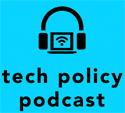Cuba’s Digital Future [PODCAST]
November 9, 2016
 Few images are as iconic to Cuba as classic 1950s cars packing Havana’s streets. But vehicles aren’t the only area where Cuba has lagged behind; Thanks to decades of Communist rule, the country is far behind much of the world when it comes to Internet access and quality.
Few images are as iconic to Cuba as classic 1950s cars packing Havana’s streets. But vehicles aren’t the only area where Cuba has lagged behind; Thanks to decades of Communist rule, the country is far behind much of the world when it comes to Internet access and quality.
Fortunately, that may be changing soon. Cuba’s state-run ISP has begun deploying Wi-Fi hot spots available for about $2 per hour that, while highly expensive for most Cubans, offers a previously unavailable level of access. The number of these hot spots grew to 65 in 2015, with another 80 projected to be up and running by the end of 2016. And as relations between the US and Cuba continue to thaw, new avenues are opening for American tech companies to help bring Cuba into its digital age. In a recent episode of the Tech Policy Podcast, Adelina Bryant and Michael Maisel from the Engage Cuba coalition, and Lydia Beyoud, senior tech and telecom reporter for Bloomberg BNA, joined the show to discuss Cuba’s digital future.
“I think as Cubans have more access to the Internet and have more options to connect, they’ll be asking for more hot spots,” Bryant said. “They’re given an inch, and they want a mile. That’s also why we think the policy needs to change. We should be supporting the Cubans’ right to keep demanding more, and we love that the Cubans are asking for change”
Many Cubans have found ways to work around their limited access, most notably through El Paquete, or “The Package.” External hard drives are loaded up outside the country with videos, music, articles and other content from the Internet and distributed among an underground network of customers.
Even with limited Internet access, there’s a strong entrepreneurial spirit in the digital space. Cuban programmers have developed apps that provide the functions of popular American apps like Yelp and OpenTable to the Cuban market. Airbnb is also surprisingly widely used, thanks to managers around the country who act as middlemen to connect guests with hosts and keep updated listings in order to work around the lack of Internet access.
While Internet deployment across the island is advancing at a steady pace, the possibility of opening up trade with the US could allow American telecom companies to greatly accelerate the process. While significant policy hurdles remain in both countries, many in the US, including TechFreedom and other members of Engage Cuba, are pushing for looser restrictions that would allow American companies to compete in this market currently dominated by Chinese telecom company Huawei.
“When I speak with folks in the tech and telecom sectors, they tell me that this is a really exciting opportunity for them, because this is a country with a population about 11 million with an obvious desire to be connected to the world,” Beyoud said. “And yet it’s something called a green field. There’s a little bit of infrastructure, but it’s pretty old, it’s decaying, and there is a lot of opportunity there.”
To listen to podcast, click on icon below:




























